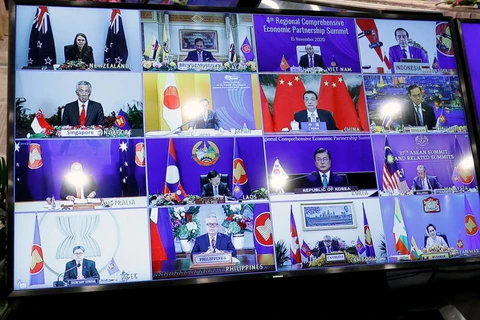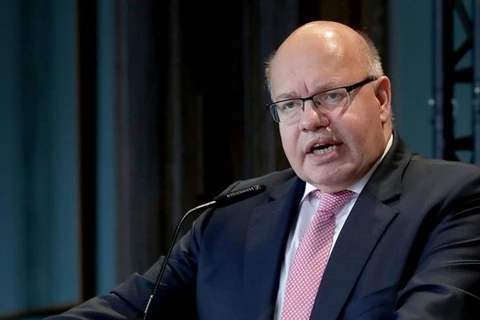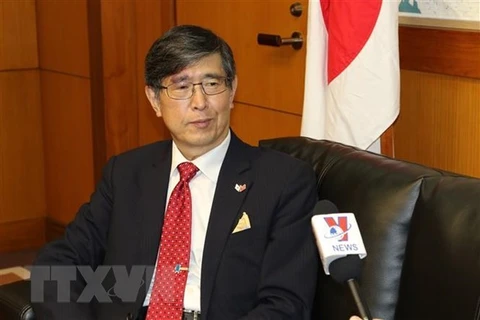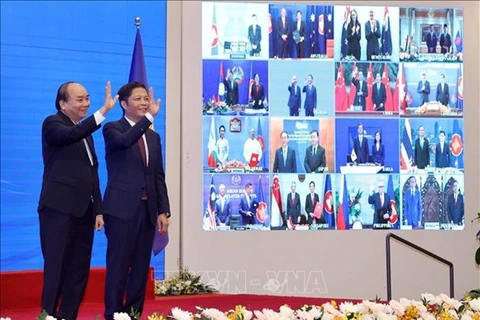 Prime Minister Nguyen Xuan Phuc (left) and Minister of Industry and Trade Tran Tuan Anh at the signing ceremony on November 15. (Photo: VNA)
Prime Minister Nguyen Xuan Phuc (left) and Minister of Industry and Trade Tran Tuan Anh at the signing ceremony on November 15. (Photo: VNA) Hanoi (VNA) - The Regional Comprehensive Economic Partnership (RCEP), signed by 15 Asia-Pacific countries on November 15, would bring economic benefits to these countries and help strengthen regional integration, experts have said.
"The RCEP will connect about 30 percent of the world's people and output and, in the right political context, will generate significant gains," said a report jointly issued on November 16 by Peter A. Petri, a nonresident senior fellow of the Brookings Institution and Michael Plummer, a professor of international economics at Johns Hopkins University.
The RCEP could add 209 billion USD annually to world incomes, and 500 billion dollars to world trade by 2030, according to computer simulations published by Petri and Plummer.
The report estimated that the RCEP, together with the Comprehensive and Progressive Agreement for Trans-Pacific Partnership (CPTPP) signed in 2018, will make the economies of North and Southeast Asia more efficient by linking their strengths.
North Asia's economies may benefit most, with other nations already covered by a patchwork of existing free trade agreements, said Mark Haefele, chief investment officer of UBS Global Wealth Management, on November 16.
Raj Bhala, a distinguished professor at the University of Kansas Law School, told Xinhua that the RCEP partners now have the opportunity to "write and revise international trade rules on 21st century issues," including IP protection, technical standards, sanitary and phytosanitary measures, and services liberalisation.
Jeffrey Sachs, an economics professor at Columbia University and a senior United Nations advisor, told Xinhua via email on November 16 that as the next step, the RCEP should strengthen cooperation on restoring tourism and trade, investing in renewable energy, and achieving sustainable development./.
VNA























